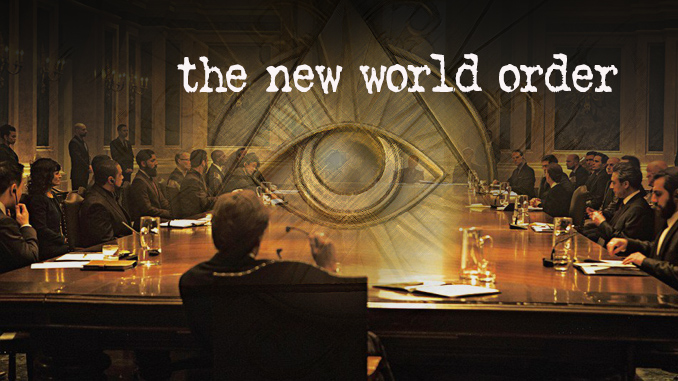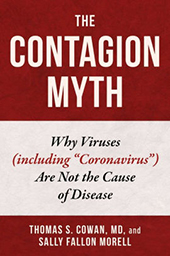
Globalists don’t plan to let the “Covid crisis” go to waste.
By Mark Anderson
The Chicago Council on Global Affairs (CCGA), after a four-month delay, held its annual Pritzker Forum on Global Cities on Oct. 15. Mayors from three major U.S. cities, as well as European officials and others expounded on the way that, under cover of Covid-19, the global cities movement is on the brink of taking a quantum leap forward, far beyond what would otherwise be the case. The thrust is to endow municipalities with unprecedented authority in order to escalate the movement’s general objective of enabling major cities to tightly network with each other around the world, while increasingly sidestepping the authority of nation states. Although this shift has the seemingly agreeable appearance of “enhancing local control,” it raises thorny constitutional questions.
 Starting in 2016, when this writer exclusively covered the CCGA’s first-ever global cities forum—largely because the CCGA, like dozens of other world affairs forums in the U.S. and abroad, share members, guest speakers, and/or policy ideas with the Bilderberg Group, the Trilateral Commission, the Brookings Institution etc.—the overall global cities movement has gone from rather casual suggestions that cities assume more authority to serious discussion about cities having their own foreign policy and international diplomatic machinery. City government, they say, is closest to the people in this age of globalization and urbanization. First discussed in early 2018 at the Chatham House think tank in the UK, that brow-raising proposal would give cities new powers that collide with constitutional protocols that reserve diplomacy for national governments.
Starting in 2016, when this writer exclusively covered the CCGA’s first-ever global cities forum—largely because the CCGA, like dozens of other world affairs forums in the U.S. and abroad, share members, guest speakers, and/or policy ideas with the Bilderberg Group, the Trilateral Commission, the Brookings Institution etc.—the overall global cities movement has gone from rather casual suggestions that cities assume more authority to serious discussion about cities having their own foreign policy and international diplomatic machinery. City government, they say, is closest to the people in this age of globalization and urbanization. First discussed in early 2018 at the Chatham House think tank in the UK, that brow-raising proposal would give cities new powers that collide with constitutional protocols that reserve diplomacy for national governments.
CCGA President Ivo Daalder, who moderated the 2020 Pritzker Forum on Global Cities which was held online via the Zoom computer platform, opened the event by stating:
The global pandemic has changed global cities as we know them. The resulting economic, social, and cultural transformations of our cities have truly been unprecedented. The cities are frontline actors, responding to a public health emergency. [U.S.] cities had to get to work and find creative ways to stay connected, with each other and [with cities] around the world.
Interestingly, Daalder, who was the CCGA’s representative at the above-mentioned 2018 UK meeting at Chatham House (the elder sibling of the infamous Council on Foreign Relations), added that the CCGA has formed “teams” that “went back to the drawing board to redesign our Forum on Global Cities as a year-around platform.” This means that this formerly once-a-year workshop, which already was the CCGA’s flagship event, is assuming an even larger dimension. It’s being partially funded by the Robert R. Mc-Cormick Foundation, whose namesake, Col. Robert R. McCormick, the stridently nationalist owner of the Chicago Tribune during its heyday, would profoundly object to the CCGA’s activities.
“Over the next 12 months, we will explore the new reality facing cities,” Daalder went on to say, while listing three planks in this plan: 1) “adapting governance”; 2) “pursuing equity”; and 3) “reimagining resilience.” He continued, “The virus has exposed strengths and weaknesses in the way counties, states, and cities prepare for [crises, including Covid],” while highlighting “how different levels of government work together—or not.”
Daalder’s comments represent the highly deceptive doublespeak language of globalese, used by globalist groups the world over. While his remarks may at first sound reasonable, references to “adapting governance” and various “transformations” comprise a classic case of invoking the dictum of former Chicago mayor and longtime CCGA friend Rahm Emanuel: “Never let a good crisis go to waste.”
Thus, the Covid pandemic—regardless of its many debatable aspects in terms of inflated data, as well as Covid-related government crackdowns that often qualify as tyranny—becomes “the perfect storm” with which to accelerate and solidify global government via local channels. That has several alarming aspects, as this writer has learned by closely covering the global cities movement. For example, the movement calls for “smart cities” that heavily emphasize the technology needed for intrusive surveillance of the public based on the 5G-oriented “internet of things.”
So, if an allegedly “safe” Covid-19 vaccine is ever developed—and accepted by the public, partly due to the mass media downplaying the adverse reactions reported during the current human vaccine trials by AstraZeneca and other drug firms—anyone who refuses to be vaccinated likely would be tagged. And, given the mentality of many of the nation’s “blue” mayors who break up peaceful, legal protests but often allow looters and arsonists to roam freely, it’s not difficult to see where the 21st century’s global cities scheme may be heading.
The participating U.S. mayors at the 2020 global cities conference—Miami’s Francis Suarez, Seattle’s Jenny Durkan, and Pittsburgh’s Bill Peduto—mainly covered practical matters, such as ultra-liberal Durkan saying that Seattle “created a $100-million fund” to address Covid-related economic recovery matters. However, that’s being done on a biased “racial minority” basis—rather than simply helping everyone regardless of color or heritage (so much for pursuing equity).

In addition, the mayors of Palermo, Italy (Leoluca Orlando), Dublin, Ireland (Hazel Chu), and former New Zealand ultra-globalist Prime Minister Helen Clark chimed in to round out this year’s conference. While praising New Zealand, Uruguay, and Taiwan for reportedly combating Covid-19 effectively, Ms. Clark declared that “complicated systems of layered government” are counterproductive and pointed to New Zealand’s strong central government as the supposed ideal model to follow. Yet, the tendency of strong central governments, such as that of Victoria state in Australia, to severely abridge human rights and harm human health via the Covid crackdown was not part of the conversation at the global cities forum.
Lord Mayor Chu noted that the local governments and Ireland’s national government have often locked horns. “I would like to see this role (the mayor) have more power. There needs to be more power given to the local counselors,” she remarked, in line with the essential goals of global cities advocates. True to globalist form, she embraces “inclusion and integration” in Ireland, indicating she supports foreign migration into Ireland even during the pandemic—and while the Irish people themselves must follow strict anti-Covid regulations.
Mark Anderson is AFP’s roving editor. Email him at [email protected].





